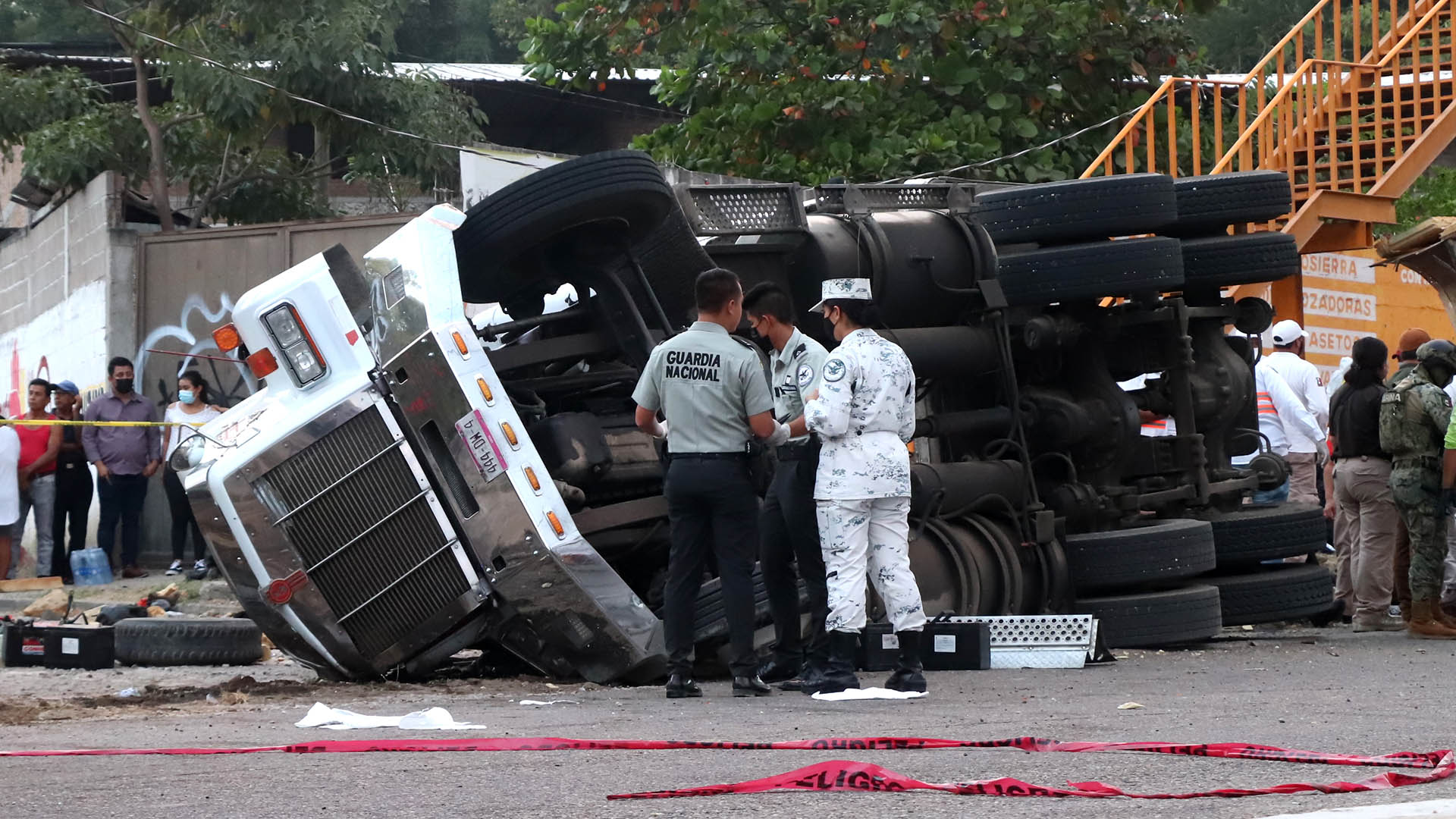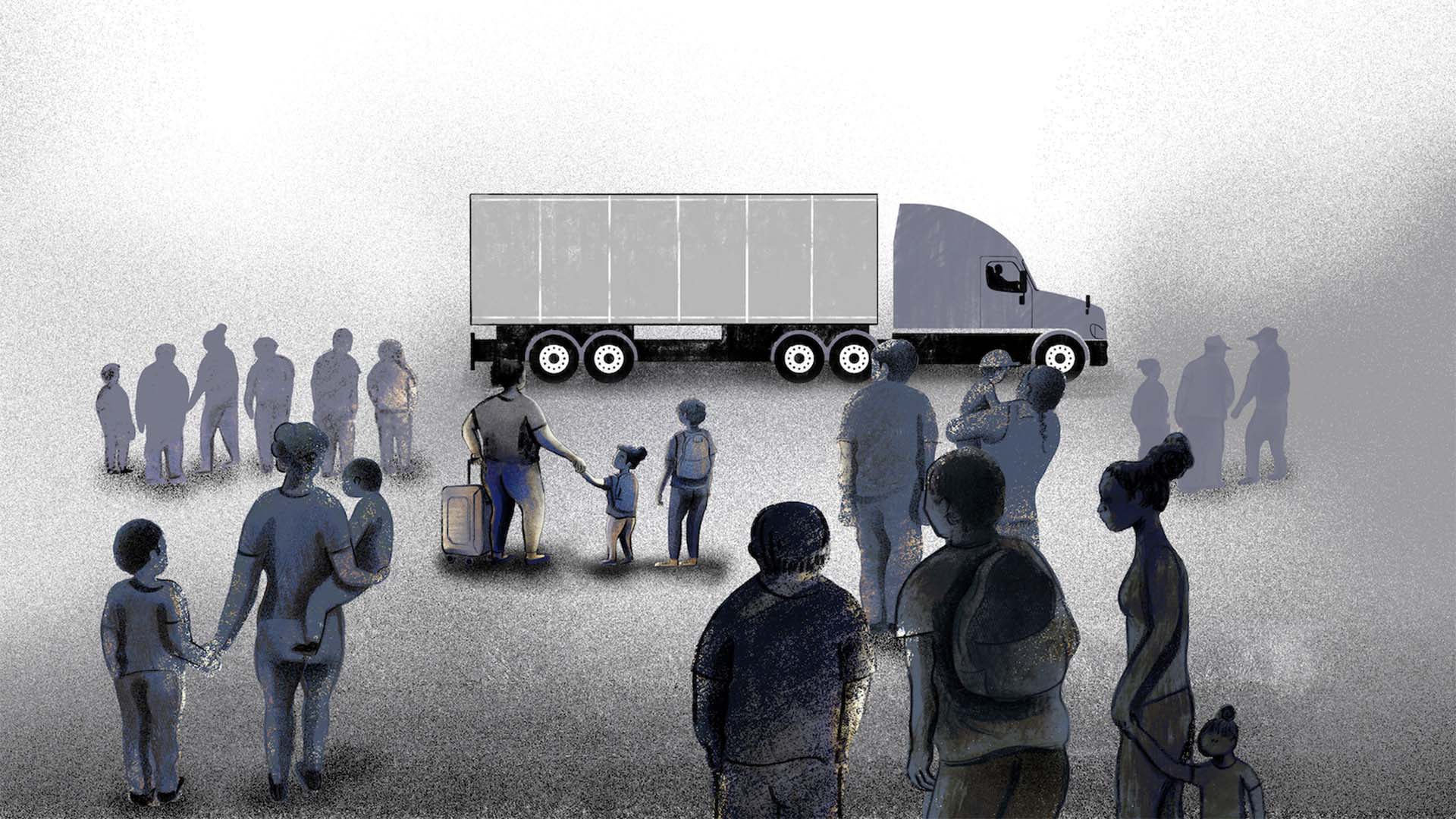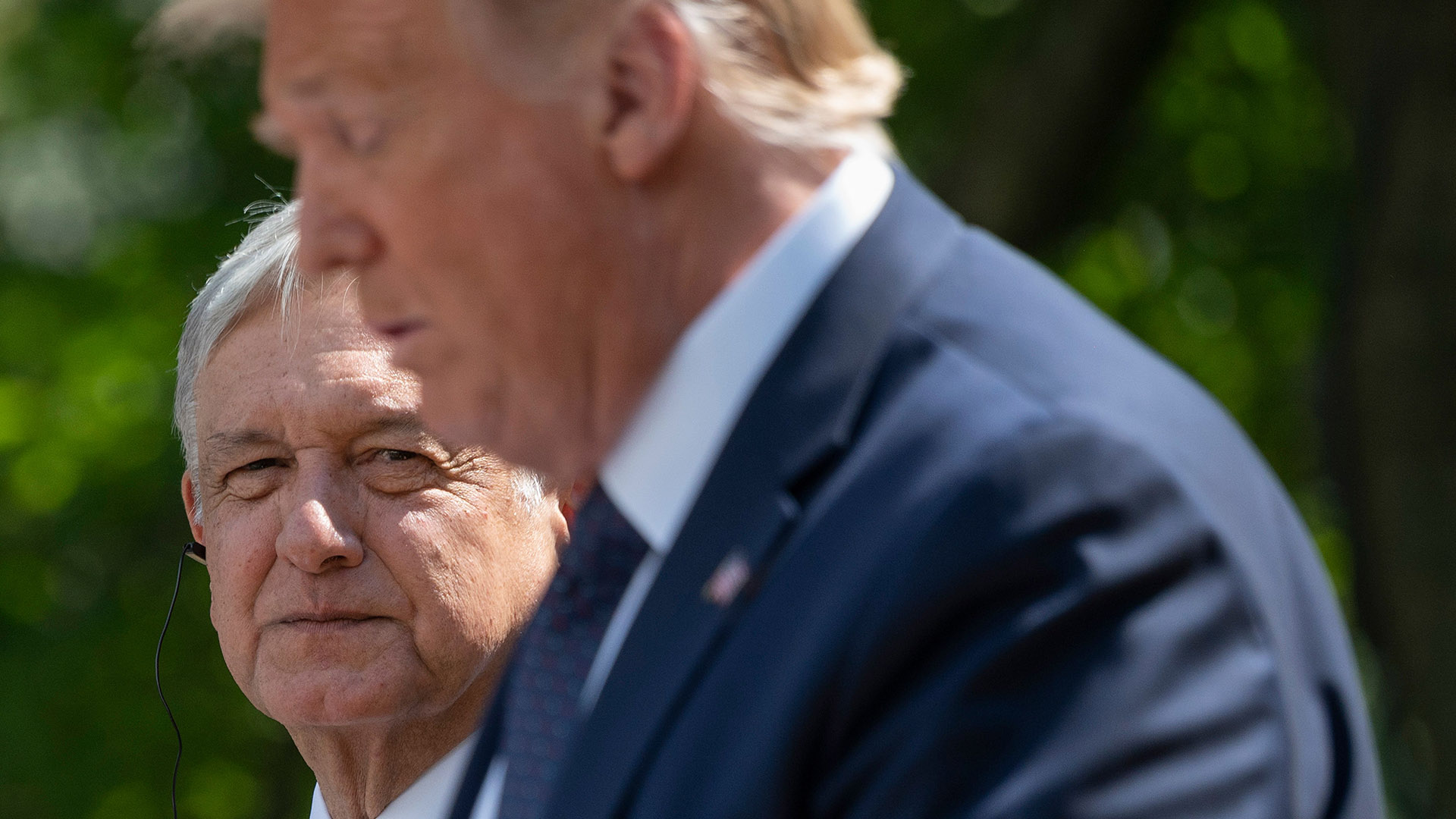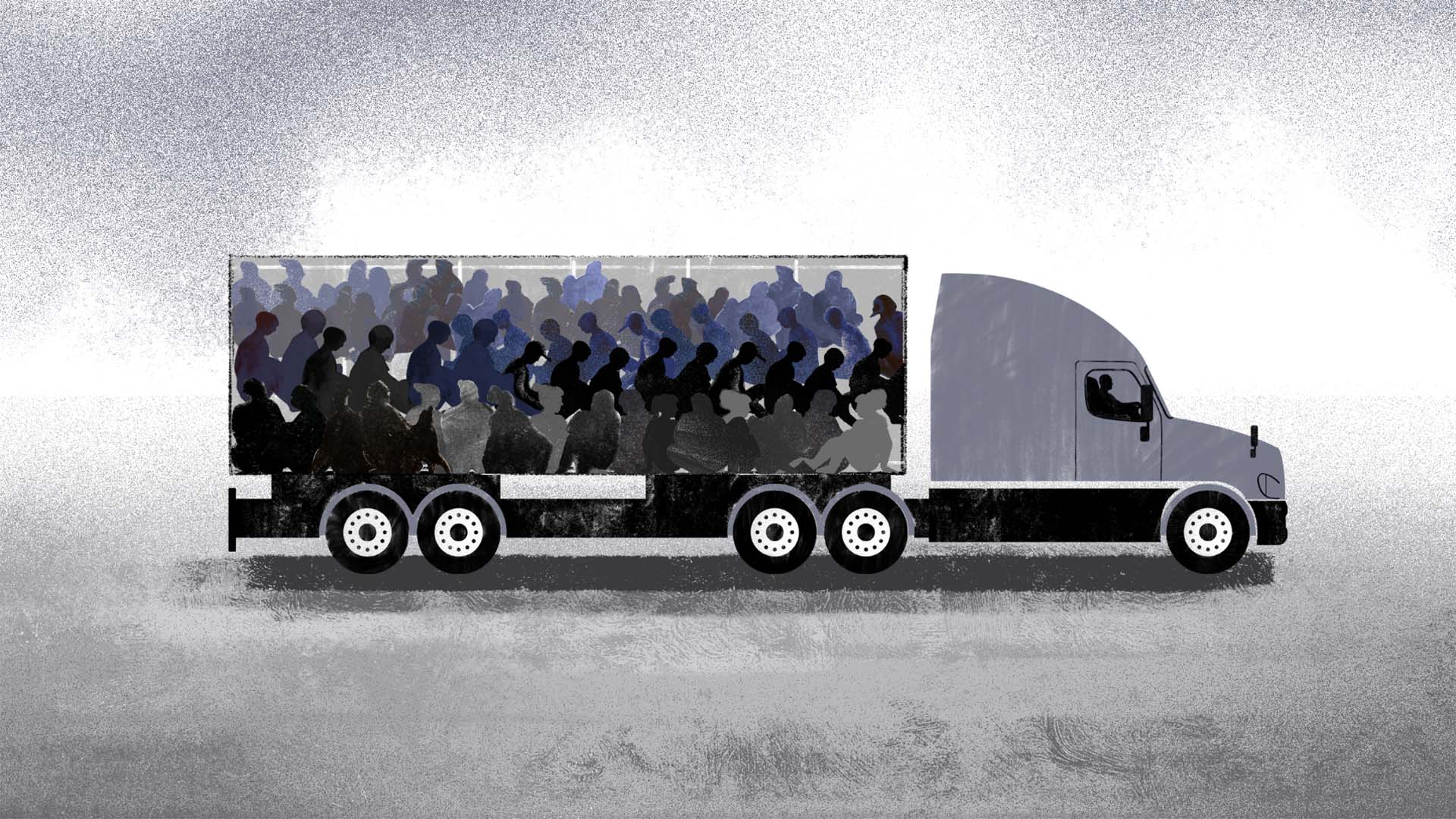Accountability
US authorities say new cross-border strategy led to six arrests in deadly truck smuggling case
Fifty-six people died and more than 100 were injured when a truck smuggling migrants overturned on a Mexican highway in 2021.

On Dec. 9, 2021, a trailer truck crammed with dozens of migrants overturned while speeding on a highway in Chiapas, in southern Mexico. Fifty-six people died and 113 were wounded.
Earlier this month, on the third anniversary of the accident — one of the deadliest involving migrants in recent history — authorities in Guatemala and the United States arrested six people on human smuggling charges. Five were apprehended in Guatemala and one in Texas.
An investigation by Noticias Telemundo, the Latin American Center for Investigative Journalism (CLIP), ICIJ and local outlets in Central America and Mexico published in April found the smuggling of migrants in trucks is on the rise.
The arrests and likely extradition to the U.S. of the four arrested in Guatemala are part of a recent trend of cross-border law enforcement cooperation targeting human smuggling. After decades of focusing mostly on border enforcement and following a record number of migrants crossing into the U.S. from Mexico in 2023, authorities have increasingly shifted their attention to smuggling networks that help migrants reach the border.
In a Dec. 9 press conference, announcing the arrests, Guatemala’s Minister of Interior Francisco Jimenez credited law enforcement agents in both countries with “dismantling a criminal network” dedicated to trafficking people to the U.S. Tomas Quino Canil, Alberto Marcario Chitic, Oswaldo Manuel Zavala Quino and Josefa Quino Canil De Zavala were arrested in Guatemala. Jorge Agapito Ventura was detained at his house in Cleveland, Texas. The name of the sixth person is blacked out in an unsealed indictment. The group, identified by authorities as “Los Quino,” is accused of recruiting migrants, collecting payment and moving them “on foot and inside microbuses, cattle trucks, and tractor trailers” to bring them to the U.S. without authorization. The criminal charges include placing life in jeopardy, causing serious bodily injury and death, according to the indictment. ICIJ could not contact an attorney representing the people indicted.
The suspects were indicted in the southern district of Texas and federal prosecutors said they will formally request their extradition to the U.S. In a post on X, Jimenez described four of the five people arrested in Guatemala as “extraditables.”
🚨URGENTE🚨
Desarticulamos estructura de tráfico de migrantes “Los Quinos”. Vinculados a un caso del 2021 en el que 56 migrantes perdieron la vida en Chiapas, MX.
6 capturados, 4 extraditables. ✈️🇺🇸@mingobguate 🤝@Ejercito_GT 🤝 @DHSgov y Mp. https://t.co/UtFQE5izLF
— Francisco Jiménez (@FJimenezmingob) December 9, 2024
“While this crash transpired beyond our borders, it is imperative that the pursuit of justice transcends those boundaries,” U.S. Attorney for the Southern District of Texas Alamdar Hamdani said in a press release.
Daniel Richman, a former federal prosecutor in New York and a law professor at Columbia University, noted that while human smuggling cases are recent compared to those related to other forms of transnational crime, authorities in the U.S. and abroad already have a legal blueprint for prosecuting them.
“The structure of this is not exactly normal, but pretty normal if you think about drugs,” Richman said. “The principle of prosecuting individuals intending to commit crimes in the U.S. is well-developed, primarily in drug cases, and it’s easily transferable.”
Under long-standing extradition treaties with Mexico, Colombia and Central American countries, the U.S. has convicted some of the most notorious leaders of drug cartels, from Carlos Lehder in 1987 to Joaquin “El Chapo” Guzman in 2017. The U.S. has also extradited presidents and other high-ranking officials in connection to drug trafficking and corruption cases. Cartels have also expanded into human smuggling, which has become a multibillion-dollar business. In recent years, some have taken over smuggling operations that were previously controlled by a loose network of smugglers called coyotes or polleros.
In June 2021, after border crossings nearly doubled during the first few months of the Biden administration, U.S. Attorney General Merrick Garland announced the creation of Joint Task Force Alpha, which combined the work of prosecutors and agents from law enforcement agencies like the DEA, the FBI and Homeland Security Investigations (HSI) to tackle smuggling cases. The Department of Justice would also “enhance the assistance provided to counterparts” in Guatemala, Honduras, El Salvador, “and Mexico to support their efforts to prosecute smuggling and trafficking networks in their own courts,” Garland said in a statement at the time.
The arrests in Guatemala and Texas, as well as recent convictions of smugglers, are the result of those efforts, Garland said in a statement on Dec. 9, 2024. “Since we launched Joint Task Force Alpha (JTFA) more than three years ago, we have secured more than 330 domestic and international arrests and more than 275 convictions on smuggling offenses, as well as significant jail sentences and substantial forfeitures.”
In April, ICIJ and media partners in Latin America, Europe and the U.S. published Cargo Trucks: a trap for migrants, an investigation that documented nearly 19,000 migrants’ journeys to the U.S. border under dangerous conditions.
The investigation, led by Noticias Telemundo and CLIP, found that the illegal use of cargo trucks to smuggle people across Mexico is on the rise, as are accidents and deaths involving migrants and trucks. This is happening as the Mexican government, pressured by the United States, toughens its policies to limit the record number of people crossing its territory in recent years, pushing migrants to seek more dangerous and often deadly ways to travel.
Reporters looked into the Dec. 9, 2021 accident, which killed or wounded dozens of Guatemalans as well as migrants from the Dominican Republic, Ecuador and El Salvador. Reporters interviewed survivors and relatives of victims of the December 2021 accident.
Shortly after the accident, authorities from the U.S., Mexico and the countries of origin of the victims promised to swiftly investigate and prosecute the people responsible for the accident. But reporters revealed that the group met only twice and couldn’t find evidence of their work or anyone held accountable for the accident in any country. Although people were arrested in Mexico and the Dominican Republic in the weeks following the incident, no one has gone to trial.
In a statement sent to ICIJ, the Mexican Attorney General’s Office said the case is ongoing and that three of four suspects who were arrested following the accident remain under arrest.
Asked whether Mexico would also request to extradite the five people recently arrested in Guatemala — since the 2021 accident happened in Mexican territory — the Mexican Attorney General’s Office said in its statement, “if it turns out that any of the people detained by the governments of the United States of America and Guatemala are related to the events investigated in [Mexico], and have an outstanding arrest warrant to be fulfilled, if appropriate, their extradition will be requested.”
In a press release, the DOJ thanked the authorities in Mexico for their assistance in the recent arrests. Although the crash happened beyond U.S. borders, the indictment alleges that the suspects used Facebook Messenger to distribute written scripts to unaccompanied minors instructing them on what to say if they were detained by U.S. authorities.
“The U.S. isn’t the most natural place for this to be charged in terms of ordinary criminal law practices, that’s true. But there’s an overlay on those practices,” explained Richman, the former prosecutor. “Here, I could speculate, it serves the Biden administration to show that, while they have sensitivity to migrants’ interests, they come down hard on traffickers. That has always been a stance of this administration, and this case is consistent with that. It’s a strong statement to make before leaving office.”
The DOJ declined to answer whether it is cooperating with other countries whose nationals died in the Dec. 2021 accident and if more arrests in those countries are expected.
Kenia Castillo, whose son, Rafelin Martinez Castillo, was among the Dominican migrants who died during the accident, told ICIJ she is unaware of any efforts of delivering justice to the survivors and their relatives.
“No one has ever contacted me and it also isn’t my priority, really,” said Castillo, who is now raising the five-year-old daughter left by her son. “Justice would be to have my son back but the loss is irreparable … we are worse off than when he left.”
Justice would be to have my son back but the loss is irreparable … we are worse off than when he left.
— Kenia Castillo, whose son was killed in the 2021 accident
In his statement following the arrests in Guatemala, Garland said the DOJ “will continue to work across agencies and across borders to stop the scourge of human smuggling.” But it is unclear if or how a new Trump administration will advance these efforts. The incoming president’s immigration plans seem more focused on beefing up security at the border and increasing arrests and deportations. In 2019, ProPublica reported that during the first fiscal year of the Trump administration, the number of new human smuggling investigations launched by HSI dropped 60% as efforts shifted from complex investigations to detentions and deportations.
Jody García, from Plaza Pública, in Guatemala and Ronny Rojas, from Noticias Telemundo, contributed to this story.


